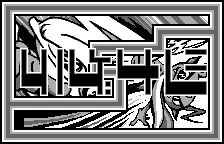Recommended
Featured Games
Flappy Bird: The Rise, Fall, and Legacy
Introduction to Flappy Bird
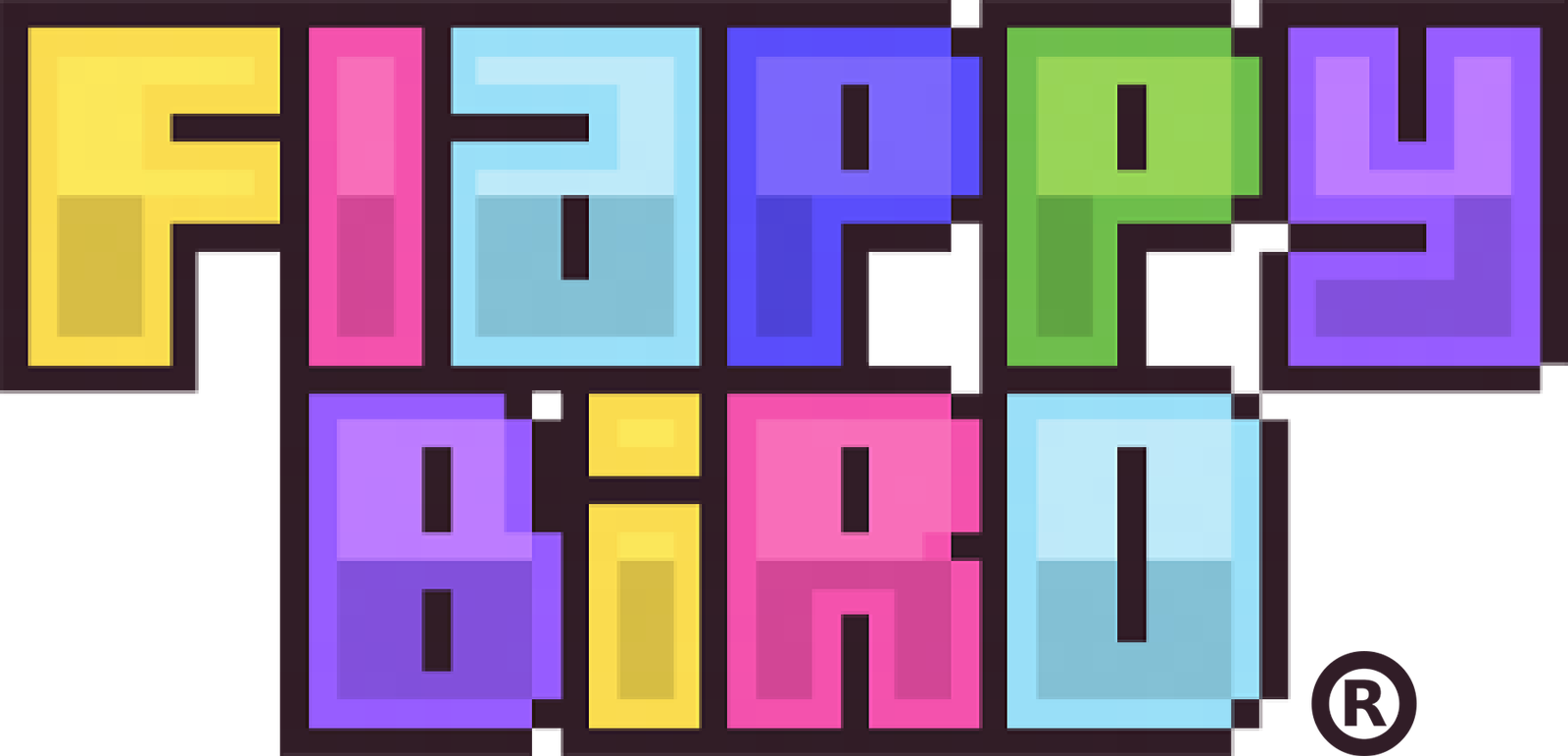
Flappy Bird was a simple yet highly addictive mobile game that took the world by storm. Released in 2013 by Vietnamese developer Dong Nguyen, it became an overnight sensation due to its challenging mechanics and minimalistic design. The game required players to navigate a small bird through a series of pipes, tapping the screen to keep it airborne. Despite its simplicity, the game quickly became a global phenomenon, dominating app store rankings and attracting millions of players.
Flappy Bird Gameplay
The core gameplay of Flappy Bird was deceptively straightforward. Players controlled a small, pixelated bird, tapping the screen to make it flap its wings and ascend. The objective was to pass through as many pairs of pipes as possible without crashing. Each successful pass earned the player one point. However, the game's high difficulty level frustrated and challenged players, making it both addictive and infamous.
Flappy Bird Pipes and Mechanics
Understanding the Pipe Obstacle System
One of the defining aspects of Flappy Bird was its use of vertically aligned pipes that players had to navigate through. These pipes:
- Appeared in random height positions, requiring precision timing.
- Had a small gap for the bird to pass through.
- Did not move, but their placement varied each game.
- Created an increasingly difficult challenge as the game progressed.
Why Was Flappy Bird So Difficult?
The physics of Flappy Bird were intentionally unforgiving. The bird would quickly descend if the player stopped tapping, making it easy to mistime a jump and collide with a pipe. Additionally:
1. No Margin for Error
The game had no checkpoints or extra lives. A single mistake resulted in game over, forcing players to start from scratch.
2. Random Pipe Placement
Unlike traditional side-scrollers, where patterns could be memorized, Flappy Bird generated pipes randomly, ensuring each playthrough was different.
3. The Frustration Factor
The combination of rapid falls, tight gaps, and no room for error made Flappy Bird one of the most rage-inducing games ever. Many players compared it to early arcade games, which required skill, patience, and persistence.
Despite—or perhaps because of—its brutal difficulty, Flappy Bird gained an enormous following. Players competed for high scores, sharing their frustrations and victories online. The game became a viral sensation, inspiring memes, challenges, and even clones attempting to replicate its success.
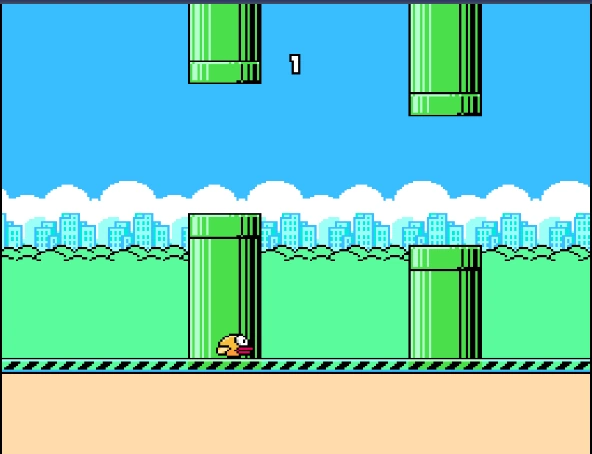
Versions and Variants
While the original Flappy Bird was removed from app stores, its legacy lives on through various versions and variants. Many players sought alternatives, leading to fan-made adaptations and unofficial sequels. This section explores whether a sequel exists and examines popular variations such as Flappy Bird unblocked and Flappy Bird unblocked 77.
Flappy Bird 2: Was There a Sequel?
After the unexpected removal of Flappy Bird, rumors circulated about a possible sequel. Developer Dong Nguyen hinted at creating a new version, but no official Flappy Bird 2 was ever released. However, many developers attempted to fill the void by creating their own versions, leading to numerous clones and unofficial sequels.
Key Facts About Flappy Bird 2
- No official Flappy Bird 2 was ever released.
- Several unofficial clones claimed to be the sequel.
- Dong Nguyen later released a similar game, Flappy Birds Family, exclusively for the Amazon Fire TV.
- The original game remains unavailable for official download.
Flappy Bird Unblocked: What Does It Mean?
With Flappy Bird removed from official app stores, players sought ways to continue playing. This led to the rise of Flappy Bird unblocked versions, which allowed users to access the game through web browsers or unofficial downloads.
Why Did Players Seek Flappy Bird Unblocked?
1. The Game’s Removal
Since Flappy Bird was taken down from the Apple App Store and Google Play, players who didn’t previously download it were unable to install the game.
2. School and Workplace Restrictions
Many institutions blocked gaming apps on their networks, prompting players to look for Flappy Bird unblocked versions to bypass these restrictions.
3. Browser-Based Alternatives
Web-based versions of Flappy Bird allowed players to enjoy the game without downloading any software.
Flappy Bird Unblocked 77: A Popular Variant
Flappy Bird unblocked 77 is a specific version of the game hosted on various gaming websites. It became one of the most popular unblocked versions, offering smooth gameplay without requiring downloads or app installations.
Features of Flappy Bird Unblocked 77
- Plays directly in a web browser.
- Free to access and requires no registration.
- Maintains the same mechanics as the original game.
- Accessible from school or work networks where other gaming sites are blocked.
While Flappy Bird unblocked 77 and similar versions offer a way to continue playing the beloved game, they are unofficial and may not always provide the same experience as the original.
Pros ✅
- Simple and easy to learn controls.
- Highly addictive and fun for short sessions.
- Encourages competitive play with high scores.
- Lightweight game, runs on almost any device.
- No in-app purchases or pay-to-win mechanics.
Cons ❌
- Extremely difficult and frustrating for some players.
- No progression system or rewards.
- Can be highly addictive and time-consuming.
- Official game is no longer available for download.
- No multiplayer or interactive elements.
Development and Popularity
The success of Flappy Bird was as unexpected as its sudden disappearance. From humble beginnings as an indie mobile game, it skyrocketed to global fame, dominating app store charts and becoming a viral sensation. This section explores the Flappy Bird creator, its impact on Google search trends, and the intriguing Google Flappy Bird Easter eggs.
Flappy Bird Creator: Who Made It?
Flappy Bird was developed by Dong Nguyen, a Vietnamese game developer and founder of .Gears Studios. The game was released in May 2013 but did not gain widespread attention until early 2014.
Key Facts About Dong Nguyen
- He created Flappy Bird in just a few days.
- He drew inspiration from simple retro games like Mario.
- The game was designed to be easy to play but extremely difficult to master.
- He removed the game from app stores in February 2014, citing its addictive nature.
Why Was Flappy Bird So Popular?
1. Viral Word-of-Mouth Growth
Players shared their frustrations and high scores on social media, leading to millions of downloads.
2. Simple Yet Challenging Mechanics
The game’s “easy to learn, hard to master” formula made it incredibly addictive.
3. Minimalistic Retro Design
Its pixel-art style and nostalgic resemblance to early Nintendo games attracted a broad audience.
Flappy Bird Google: Its Impact on Search Trends
At the peak of its popularity, Flappy Bird Google searches exploded. The game became a global trend, dominating discussions on social media and news websites.
Search Trends and Popularity
- By early 2014, "Flappy Bird" was one of the most searched terms on Google.
- After its removal, searches for "Why was Flappy Bird removed?" skyrocketed.
- People searched for Flappy Bird download links after it was taken off app stores.
- Queries for "Flappy Bird high score" and "Flappy Bird cheats" became extremely popular.
The Effect on Mobile Gaming
The overwhelming search interest in Flappy Bird Google led to a surge in casual mobile games, with many developers attempting to replicate its success. This further cemented mobile gaming as a dominant industry in entertainment.
Google Flappy Bird: Easter Eggs and Playable Versions
Due to its cultural impact, Google acknowledged Flappy Bird in various ways, including hidden Easter eggs and playable versions.
Flappy Bird-Inspired Google Easter Eggs
1. Google Doodle Games
Although Google never officially created a Flappy Bird Doodle, many users searched for a Google Flappy Bird version.
2. Chrome Dino Game Mod
Some developers modified the Chrome offline dinosaur game to include a Flappy Bird-style mechanic.
3. Playable Versions on Third-Party Websites
Unofficial versions of Flappy Bird are available to play online, often using HTML5 recreations.
Despite being removed from app stores, Flappy Bird remains a legendary game, leaving a lasting mark on both mobile gaming and internet culture.
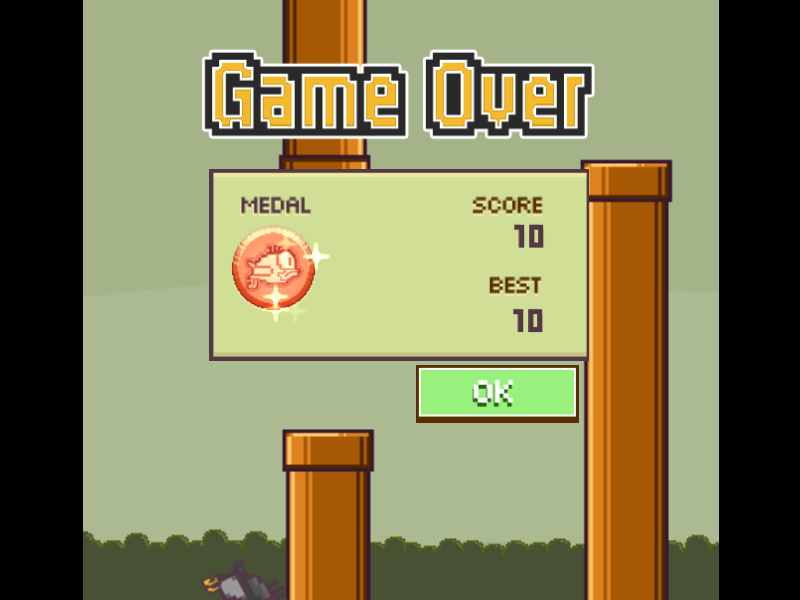
The Rise and Sudden Removal
Flappy Bird is one of the most famous mobile games ever, not just for its addictive gameplay but also for its mysterious disappearance from app stores. The game's rise was meteoric, drawing millions of players worldwide, but its sudden removal left many questioning why it vanished. This section delves into when Flappy Bird was released, why it was taken down, and what ultimately happened to the game.
When Did Flappy Bird Come Out?
The original version of Flappy Bird was released on May 24, 2013, for iOS. However, it did not achieve instant success. For several months, the game remained relatively unknown, buried among thousands of other mobile apps. It wasn’t until late 2013 and early 2014 that the game exploded in popularity, leading to millions of downloads.
The Viral Growth of Flappy Bird
- Flappy Bird gained momentum through social media, with players sharing their frustrations and achievements.
- By January 2014, the game had reached the top of the Apple App Store and Google Play Store charts.
- It was downloaded over 50 million times before being removed.
- Many compared its challenging nature to old-school arcade games, making it highly competitive.
Why Was Flappy Bird Taken Down?
Despite its massive success, Flappy Bird was taken down from both the Apple App Store and Google Play Store on February 10, 2014. The decision shocked millions of fans, as it was unusual for a developer to remove such a profitable game.
The Developer’s Explanation
Dong Nguyen, the creator of Flappy Bird, explained that he removed the game due to its unintended consequences. He stated that the game had become "too addictive" and was negatively affecting people's lives. He also expressed that the sudden attention and pressure from its success were overwhelming.
The Financial Factor
At the time of its removal, Flappy Bird was reportedly generating $50,000 per day from in-game ads. Many speculated that legal concerns or corporate pressure played a role in its removal, though Nguyen denied these claims.
What Happened to Flappy Bird?
After its removal, Flappy Bird became one of the most sought-after mobile games. Phones with the game pre-installed were listed for sale on eBay at inflated prices, sometimes reaching thousands of dollars. The game’s absence led to a flood of clones attempting to capture its magic.
Alternative Versions and Clones
- Many developers released copycat versions, trying to capitalize on Flappy Bird’s popularity.
- Google and Apple started banning games with "Flappy" in the title to curb the influx of clones.
- Nguyen later released a multiplayer variant, Flappy Birds Family, for the Amazon Fire TV.
Why Did Flappy Bird Get Deleted?
The official reason for Flappy Bird’s deletion was its impact on players. The game's high difficulty level made it frustratingly addictive, with many users complaining about their obsession with it. Nguyen felt guilty about its effect on people and believed removing the game was the best decision.
Other Speculated Reasons
1. Legal Issues
There were rumors that Nintendo might take legal action against Nguyen due to the game’s pipe design resembling those in Super Mario. However, no official lawsuit was filed.
2. Overwhelming Attention
Nguyen, an independent developer, was not used to the spotlight. The intense media scrutiny and player feedback reportedly took a toll on him.
3. Ethical Concerns
Nguyen claimed that he never intended for the game to be addictive and did not want people to suffer from its frustration.
Why Was Flappy Bird Banned?
While Flappy Bird was not officially banned, its removal sparked confusion. Many app stores began rejecting Flappy Bird clones to prevent copycats from taking advantage of its absence. Additionally, some schools and workplaces blocked access to the game due to its highly addictive nature.
Key Reasons for Restrictions
- Schools reported students were too distracted by the game.
- Workplaces observed a decline in productivity due to employees playing Flappy Bird.
- App stores actively removed clones to avoid low-quality spam applications.
Despite its removal, Flappy Bird remains one of the most iconic mobile games ever created, leaving a lasting legacy in gaming culture.
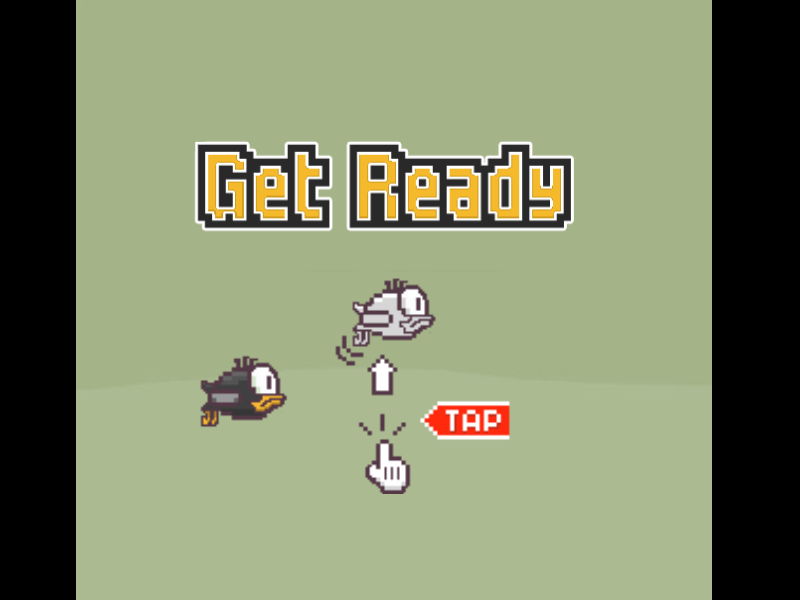
Controversies and Speculations
Although Flappy Bird was a simple mobile game, it became the center of many controversies and speculations. From its sudden removal to rumors about its alleged “ban” and mysterious conspiracy theories surrounding its impact, the game’s legacy goes beyond just frustrating players. This section explores why Flappy Bird got banned, the bizarre theories around Flappy Bird death, and the inspirations behind its design.
Why Did Flappy Bird Get Banned?
One of the most searched questions about the game is whether Flappy Bird was banned. While there was no official ban from app stores or authorities, the game was voluntarily removed by its creator, Dong Nguyen. However, several factors fueled the speculation that the game was forcefully banned.
Legal Issues with Nintendo
Many speculated that Nintendo pressured Nguyen to take down Flappy Bird due to its similarities to Super Mario games. The green pipes in Flappy Bird closely resembled the ones found in Mario titles, leading to rumors of a potential lawsuit. However, Nintendo officially denied taking any legal action.
Gaming Addiction Concerns
Another reason many believe Flappy Bird got banned is the overwhelming concern about its addictive nature. The game’s simple mechanics and frustrating difficulty level led players to spend hours trying to beat their high scores, often to the point of obsession. Parents and educators raised concerns that the game was too addictive, especially among young players.
Copycat Games and Market Oversaturation
- After the removal of Flappy Bird, thousands of clones flooded app stores.
- Apple and Google started rejecting new games with "Flappy" in their titles to prevent low-quality imitations.
- Many fake versions contained malware, leading to further scrutiny.
Despite these issues, Flappy Bird was never officially banned—it was simply taken down voluntarily.
Flappy Bird Death: Theories and Rumors
The phrase "Flappy Bird death" became a trending topic after the game was removed, leading to bizarre rumors and conspiracy theories. Some players speculated that something darker was at play behind its disappearance.
Rumor: The Developer Was Threatened
One theory suggested that Nguyen received threats from powerful gaming companies, forcing him to remove the game. However, there was never any evidence to support this claim.
Rumor: The Game Drove Players to Desperation
Some news outlets falsely reported that Flappy Bird caused mental distress among players, with unverified claims that people took drastic actions due to the game's frustrating difficulty.
Rumor: The Hidden Meaning Behind Flappy Bird
A more unusual theory suggested that Flappy Bird was designed to be intentionally frustrating, serving as an experiment on human patience and addiction.
Flappy Bird Background: What Inspired the Game?
Unlike many mobile games developed by large studios, Flappy Bird was the creation of a single indie developer, Dong Nguyen. The game was heavily influenced by old-school arcade games and simplistic pixel-art designs.
Key Inspirations for Flappy Bird
1. Classic Nintendo Games
Nguyen admitted that he was a fan of Super Mario Bros, which influenced Flappy Bird’s art style, particularly its green pipes.
2. Minimalistic Game Design
The goal was to create a game with one simple mechanic: tapping to control a single object. This simplicity made it accessible to all players.
3. Challenging but Addictive Gameplay
Flappy Bird was intentionally difficult to encourage repeated attempts. Its frustration factor made players determined to beat their high scores.
Despite its controversies, Flappy Bird remains one of the most iconic and mysterious mobile games ever created.
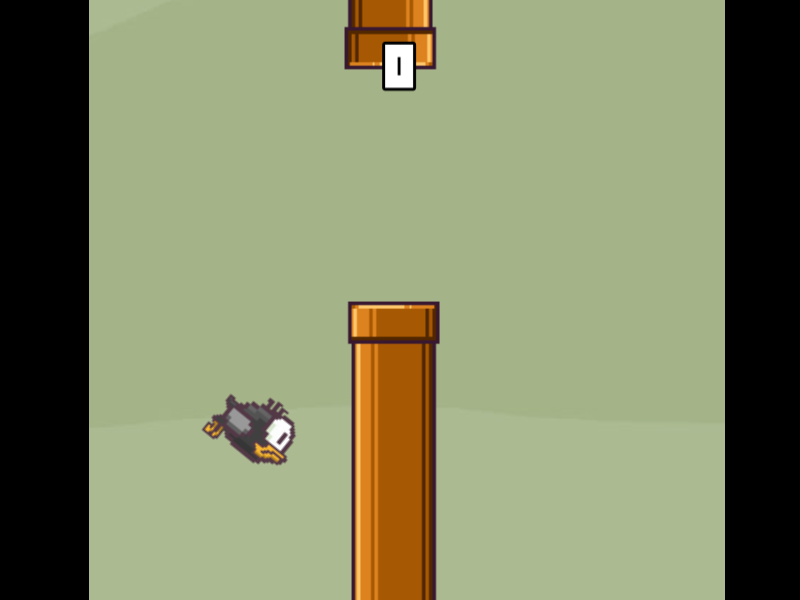
Flappy Bird Legacy
Despite being removed from app stores in 2014, Flappy Bird remains one of the most iconic mobile games ever created. Its simplicity, challenging mechanics, and unexpected removal only added to its legend. Even years later, players still search for ways to download Flappy Bird, play it online, or find alternative versions. This section explores whether the game can still be played today, the best ways to access it, and how fan recreations have kept its legacy alive.
Flappy Bird Download: Can You Still Get It?
Since Flappy Bird was removed from both the Apple App Store and Google Play Store, many players have searched for ways to download it again. However, there are limited legal and safe options available.
Ways to Access Flappy Bird
1. Phones with Flappy Bird Pre-Installed
Some players never deleted Flappy Bird from their devices. As a result, second-hand smartphones with Flappy Bird installed have been listed on eBay and other marketplaces for high prices.
2. APK Files and Jailbroken iOS Devices
Android users can find unofficial Flappy Bird APK files online, allowing them to install the game manually. However, these files often come from unofficial sources, which may pose security risks.
3. Flappy Bird Clones
Because the official game is no longer available, many developers have created clone versions with similar mechanics. These games mimic the original experience but are not official.
Play Flappy Bird: Where Can You Play Today?
Even though the official game is no longer downloadable, players can still play Flappy Bird through various alternative methods.
- Some older iOS and Android devices still have the game installed.
- Web-based versions allow players to enjoy the game without downloading anything.
- Fan-made recreations exist on platforms like Scratch and browser extensions.
Flappy Bird Online: Web-Based Versions
One of the easiest ways to play Flappy Bird today is through web-based versions. Many websites have recreated the game in HTML5, allowing players to enjoy it without the need for downloads or installations.
Features of Flappy Bird Online
1. Instant Playability
Unlike the original mobile version, online versions do not require app store downloads. Players can access the game instantly from their web browsers.
2. No Storage Required
Since web-based Flappy Bird versions run in the browser, they do not take up space on your device.
3. Various Difficulty Levels
Some online versions allow players to adjust the game’s difficulty, making it easier or harder than the original.
Flappy Bird Extension: Browser Add-Ons
For those who want a quick and easy way to play, Flappy Bird browser extensions are available for Chrome and Firefox. These extensions allow players to enjoy the game directly within their browsers.
Benefits of Using a Flappy Bird Extension
- Easy to install and play without opening a separate website.
- No ads or interruptions compared to some web-based versions.
- Runs smoothly even on lower-end devices.
Scratch Flappy Bird: Fan Recreations
Because of its simplicity, Flappy Bird has been recreated by many independent developers. One of the most popular platforms for this is Scratch, an educational programming tool that allows users to build and share games.
What Makes Scratch Flappy Bird Special?
1. Community Creations
Many versions of Flappy Bird exist on Scratch, with different modifications, levels, and features.
2. Playable on Any Device
Since Scratch games run in a web browser, players can access them from computers, tablets, or smartphones.
3. Open for Customization
Players can modify Scratch versions of Flappy Bird, adding new elements or tweaking the difficulty to their liking.
While the original Flappy Bird is no longer officially available, its legacy continues through online versions, browser extensions, and fan-made recreations. For those who still want to experience the challenge of navigating through green pipes, many alternatives exist to keep the spirit of the game alive.
Records and Achievements
Flappy Bird became one of the most challenging and competitive mobile games of its time. Its deceptively simple gameplay made achieving high scores an almost impossible feat, leading to intense competition among players worldwide. This section explores the most impressive Flappy Bird world record scores ever achieved and the level of dedication required to reach them.
Flappy Bird World Record: Highest Scores Achieved
Because of the game's difficulty, reaching high scores in Flappy Bird required extreme precision, patience, and reaction speed. While most casual players struggled to pass even 10 pipes, some dedicated players managed to push the game to its limits.
The Most Impressive Flappy Bird Scores
1. Verified High Scores
- The highest confirmed score in Flappy Bird before its removal was 999, after which the game reportedly crashed.
- Many players recorded scores in the 500-700 range, showcasing elite skill.
- The game did not have an official leaderboard, but screenshots and videos of record-breaking runs flooded the internet.
2. Cheating and Fake Scores
As with any highly competitive game, some players used modified versions or hacks to display impossibly high scores. Certain fake screenshots showed scores in the tens of thousands, but they were quickly debunked as edited images or hacked game files.
3. World Records in Alternative Versions
Since the official game was removed, players continued breaking records in alternative versions, including Flappy Bird online and modified versions with adjusted physics.
Cultural Impact
The removal of Flappy Bird only added to its mystique, making it one of the most talked-about mobile games in history. The game’s cultural impact extended beyond just gameplay, influencing everything from memes to real-world merchandise. Two of the strangest ways Flappy Bird left its mark were the release of a Flappy Bird cat toy and the skyrocketing prices of a phone with Flappy Bird pre-installed.
Flappy Bird Cat Toy: Strange Merchandise
Although Flappy Bird was a digital game, its popularity led to unusual real-world merchandise, including plush toys, clothing, and collectibles. One of the strangest creations inspired by the game was the Flappy Bird cat toy.
Why Did Flappy Bird Become a Cat Toy?
- Pet toy manufacturers capitalized on the game’s popularity by creating bird-themed cat toys.
- Many toys featured a yellow bird design similar to the game’s main character.
- Some toys included a flapping mechanism, mimicking the bird’s movement in the game.
Though it may seem odd, the Flappy Bird cat toy is an example of how the game transcended digital entertainment and became a part of pop culture.
Phone with Flappy Bird: Expensive Listings
After the game was removed from app stores, demand for Flappy Bird skyrocketed. Because the game could no longer be downloaded officially, people searched for devices that still had it installed. This led to an unusual phenomenon where a phone with Flappy Bird became a high-priced collectible.
The Rise in Value of Phones with Flappy Bird
1. eBay Listings Skyrocketed
As soon as the game was removed, sellers began listing smartphones with Flappy Bird installed for outrageous prices, with some reaching thousands of dollars.
2. Collector’s Appeal
Many gaming enthusiasts wanted to own a piece of history, treating these phones as rare artifacts from a bygone era of mobile gaming.
3. Apple and eBay Intervention
Due to the influx of high-priced listings, both Apple and eBay cracked down on sellers trying to profit off pre-installed copies of Flappy Bird, banning certain sales.
Despite these efforts, there are still collectors willing to pay premium prices for devices containing the original game.
Conclusion
The story of Flappy Bird is unlike any other in mobile gaming history. What started as a small indie project exploded into a worldwide phenomenon before disappearing just as quickly. Despite its removal, the game left a lasting impact on the industry, proving that a simple concept can captivate millions.
The Lasting Impact of Flappy Bird on the Gaming Industry
1. The Rise of Hyper-Casual Games
Flappy Bird’s success paved the way for hyper-casual games, influencing titles like Crossy Road and Helix Jump, which focused on simple yet addictive mechanics.
2. A New Level of Virality
The game set a precedent for viral mobile games, showing how social media can drive downloads without massive marketing budgets.
3. A Lesson in Game Design
Flappy Bird demonstrated that mobile games do not need complex graphics or deep storylines to be successful. Instead, gameplay mechanics are king.
Even though Flappy Bird is no longer available, its influence can still be seen in today’s gaming industry. From high-score chasers to mobile game developers, the legend of Flappy Bird continues to flap its wings in gaming history.



